
- 記事一覧
- ゲストライター記事一覧
- Arthur Schopenhauer and the Philosophy of Solitude - The Antidot to Loneliness アーサー・ショーペンハウアーと孤独の哲学 孤独への解毒剤
Arthur Schopenhauer and the Philosophy of Solitude - The Antidot to Loneliness アーサー・ショーペンハウアーと孤独の哲学 孤独への解毒剤

A short disclaimer in advance, I am only a philosopher by heart and not by training. Therefore, the following text only reflects my personal interpretation and lessons, which I took from the philosophy of Arthur Schopenhauer.
During the Covid-19 pandemic, humanity did not just have to fight against a persistent virus, which restricted all of our freedom significantly, but also against the emotional backlashes of social distancing. It was only a matter of time, until the communal isolation begun to take its toll by spreading feelings of loneliness in the heart of the people.
A cross-sectional online survey revealed that, worldwide, the percentage of people, who suffered from being alone had risen from 6% to 21 % . This study included Japan as well. The newspaper "Japan Times" reported that according to a recent survey, nearly 40% of the adults in Japan felt lonely during the pandemic. To make the scope of the problem a little clearer, this would mean that around 41.84 million people in Japan suffered from being disconnected from their community. However, at the end, this emotional reaction was natural. People in many parts of the world used to take their social freedom for granted, but didn’t realize how privileged they were being able to enjoy social life to the fullest. Now, that we have come to this realization, remorse had turned into sorrow. This change of mind has formed a fertile ground which allowed forlornness to grow and spread rapidly.
Loneliness has a severe impact on our psychological and physical health. Unfortunately, the symptoms and consequences of aloneness are far-reaching and partly irreparable. Starting from sleep deprivation, weight gain, high blood pressure and immune system weakening, and up to anxiety, depression or even death . Once loneliness becomes a chronical disease, people will experience their state of isolation as a constant torture; caught in an eternal nightmare, without being able to wake up. Unfortunately, loneliness is an integral part of our emotional spectrum, which means that sooner or later every one of us will have to face the painful feeling of undesired isolation. But there is even worse news to come. Until today, humanity hasn’t found a reliable panacea against this widespread “disease”. Of course, it is possible to cloud the mind with medications, but it only conceals the problem and does not solve it. So, what else can we do when we are confronted with the feelings of lonesomeness?
Some people, like myself, turn to philosophy. German theoreticians, philosophers and thinkers in particular understood loneliness as an essential part of human existence. One of them, was the famous philosopher Arthur Schopenhauer. His view on the worldly life can be summarized bluntly as the following:” The safest way of not being very miserable is not expecting to be very happy” . Due to his dark and often cynical way of thinking, Schopenhauer even nowadays is often referred to as the “Philosopher of Pessimism”, the “Sad Prince of Pessimism” and the “Messenger of Misery” .
A brief background : Arthur Schopenhauer was born in 1788 in Danzig (Poland) . His financially wealthy background allowed Schopenhauer to travel all around Europe when he was young of age. During his journeys, he witnessed, the agony of the human existence first-hand, which inspired him later to pursue a career in academia. After briefly studying medicine, he became a student of Philosophy at the University of Göttingen and at the University of Jena. Smart as he was, it didn’t take long until he got a teaching position at the University of Berlin (Germany). However, Schopenhauer found very little success in his new job. Disillusioned and disappointed about the dry and tedious education system, he withdrew from his prestigious position at the University of Berlin. After his days at the institution of higher education, Schopenhauer spent most of his time in domestic solitude philosophizing and writing. However, alone is not quite correct. Faithfully by his side was his little poodle called Atman . Rumours say, that the neighbour’s children jokingly called his poodle “Mrs. Schopenhauer” . Despite his pessimistic view of the world, Schopenhauer never fell into a state of despair himself, and his philosophy explains why. The Antidot to Loneliness consists of three simple ingredients.
Perception – Loneliness Means Freedom
In his opera minore, Counsels and Maxims (1851), Schopenhauer argued once that: “A man can be himself only as long as he is alone; and if he does not love solitude, he will not love freedom; for it is only when he is alone that he is really free” . In fact, living in society is, to put it bluntly, basically a trade-off between freedom and protection. According to Schopenhauer, absolute personal freedom can only be achieved when the individuum is not restraint by human interactions. Therefore, solitude (even forced one’s) should be understood as a potential for personal liberation rather than as a psychological imprisonment. The strength of this quote lies particularly in its emphasis on the idea of discernment. In the end, the psychological harm of social isolation can only manifest itself if the mind of the individual allows it. Understanding that social exclusion does not necessarily have to evoke loneliness is of utmost importance. Therefore, the first ingredient for Schopenhauer’s Antidot to Loneliness, could be called the “the perception of the individual circumstances”.
Solitude – Meditation and Self-Reflection
It is well known, that Schopenhauer praised Buddhism as most likely the finest of all world religions . Schopenhauer’s philosophy and Buddhism share the belief in meditation and self-reflection. In his own words: “In solitude each one has to face one’s own self” . As mentioned earlier, even the “Philosopher of Pessimism” himself spent most of his time in domestic isolation. One could argue that philosophizing in solitude had become his personal way of meditation and self-reflection. At the moment of spiritual self-confrontation, the individuum receives the opportunity to explore the origin of one’s own psychological anxiety; it enables people to practice “mindfulness”. Becoming consciously aware of one’s own emotional state allows the individual to identify the origin of his/her personal agony. Therefore, the second ingredient for Schopenhauer’s Antidot to Loneliness could be called “finding mindfulness in self-reflection”.
Boredom – Everyone Hates It!
If there is one archenemy of Schopenhauer, then it is boredom. To quote the “Philosopher of Pessimism” himself:” Boredom is certainly not an evil to be taken lightly: it will ultimately etch lines of true despair onto a face” . In fact, his philosophy deals quite a lot with the fight against the tediousness of human existence. Schopenhauer firmly believed that “The two enemies of human happiness are pain and boredom” . There is a clear difference between solitude and loneliness, and that is the degree of resistance against boredom, a distinction that is still accurate today. It is always advisable to have a work, a hobby or any other pastime, which keeps the mind busy, in order to prevent the emergence of boredom in life. Avoiding boredom was not just an essential part of Schopenhauer’s philosophy but also of his own life. The German philosopher himself had very strict daily routines, which kept him constantly busy. In other words, “The person who is busy, has no time to feel lonely”. Maybe that’s why Schopenhauer himself never gave in into the despair resulting of solitude, despite spending most of his time in social seclusion. Therefore, the third ingredient for Schopenhauer’s Antidot to Loneliness could be called “Resistance to boredom”.
Clearly, the above brewed potion is not directly based on the teaching of Schopenhauer, but rather inspired by his “Philosophy of Pessimism”. So, the next time when you sense a feeling of loneliness creeping into in your life, take a sip of the above presented Antidot to Loneliness, and who knows, maybe it will help to calm down your anxious mind as well. Remember that Schopenhauer also argued that “loneliness is the fate of all outstanding minds” . And if it doesn’t help you, maybe you are simply one of the magnificent minds of our time.
前もって断っておきますと、私はあくまで根っからの哲学者であり、哲学者としての訓練を受けたわけではありません。そのため、以下の文章は、アーサー・ショーペンハウアーの哲学の私の個人的な解釈とそこから学んだ事を反映しているに過ぎませんのでご容赦ください。
コロナのパンデミックでは、人類は、自由をかなり制限されるウイルスと継続的に戦うだけでなく、人々の間に社会的な距離を置くことで生じる感情的な反発とも戦わなければなりませんでした。そのような中で生じた社会的な孤立が、人々の心に孤独感をもたらし始めるのは時間の問題でした。あるオンラインの調査では、孤独に悩む人の割合が、世界全体で6%から21%に上昇したという事が明らかになりました。この調査の中には日本も含まれています。新聞「ジャパンタイムズ」の最近の調査によると、日本の成人の40%近くがパンデミック中に孤独を感じていたと報じられています。つまり、日本では約4,184万人がコミュニティから切り離され、苦しんでいたことになります。しかし、結局のところ、この感情は自然なものだったのです。世界の多くの地域で、人々はこれまで社会の中で自由に振る舞えることを当然と考え、社会生活を満喫できるという事がいかに特権がある事なのかを認識していなかったのです。そのことに気づいた今、人々の反省の心は悲しみへと変わっていきました。そのことが、"寂しさ "を急速に拡大させる土壌となったのです。
孤独は、私たちの心理的・身体的健康に深刻な影響を及ぼします。残念ながら、孤独がもたらす症状や影響は広範囲に及び、その一部は修復不可能です。睡眠不足、体重増加、高血圧、免疫力の低下から始まり、不安、うつ、そして死に至るまで。ひとたび孤独が慢性的な病気となると、人々は孤独の状態を絶え間ない拷問として経験するようになり、目を覚ますことができない永遠の悪夢に捕らわれているような状態になります。残念ながら、孤独は私たちの感情の一部であり、遅かれ早かれ誰もが、孤独という痛みに直面することになるのです。しかし、さらに悪いニュースがあります。今日まで、人類はこの広く蔓延する「病気」に対する万能薬を発見していないのです。もちろん、薬で心の動きを鈍らせることは可能ですが、それは問題を隠すだけで、解決には至りません。それでは、孤独感に襲われたとき、私たちは他にどうすればよいのでしょうか。
私のように、哲学に目を向ける人もいます。特にドイツの理論家、哲学者、思想家は、孤独を人間存在の本質的な部分として理解していました。その一人が、有名な哲学者、アーサー・ショーペンハウアーです。彼の人生観は次の言葉で理解することができます。「とても惨めにならないための最も安全な方法は、とても幸せになることを期待しないことである」。ショーペンハウアーは、その暗く、しばしば皮肉的な考え方から、今日でもしばしば「悲観主義の哲学者」、「悲観主義者の悲しい王子」、「不幸の使者」と呼ばれることがあります。
ショーペンハウアーは 1788 年にダンツィヒ(ポーランド)に生まれました。経済的には裕福であったため、ショーペンハウアーは若い間にヨーロッパ各地を旅行することができました。その旅の中で、彼は人間の存在の苦悩を目の当たりにし、それが後に学問の道を追求するきっかけとなったのです。医学を短期間学んだ後、ゲッティンゲン大学とイエナ大学で哲学を学びました。賢い彼にとって、ベルリン大学(ドイツ)で教職に就くまで、それほど時間はかかりませんでした。しかし、ショーペンハウアーは新しい職場ではほとんど成功を収めることが出来ませんでした。彼はつまらない教育制度に失望し、ベルリン大学での権威ある職を辞してしまったのです。高等教育機関での日々を終えたショーペンハウアーは、孤独に過ごす中で哲学をし、ほとんどの時間を執筆に費やしました。しかし、孤独だったというのは正しくはありません。彼のそばにはアトマンと呼ばれる小さなプードルがいました。噂によると、近所の子供たちは冗談で彼のプードルを「ショーペンハウアー夫人」と呼んでいたそうです。ショーペンハウアーは、その悲観的な世界観にもかかわらず、決して絶望に陥ることはありませんでしたが、その理由は彼の哲学にあります。彼の執筆した「孤独への解毒剤」は、3つの成分から構成されています。
認識 - 孤独というのは自由を意味する
ショーペンハウアーは、オペラ『助言と箴言』(1851年)の中で、次のように論じました。「もし彼が孤独を愛さないなら、自由を愛することもないだろう。なぜなら、彼が本当に自由であるのは、一人でいるときだけだからである」。社会で生きるということは、大げさに言えば、自由と保護のトレードオフです。ショーペンハウアーによれば、個人の絶対的な自由は、人間関係によって束縛されないときにのみ達成されます。したがって、孤独は、たとえ強制的なものであっても、心理的な監禁としてではなく、個人の解放の可能性として理解されるべきなのです。この引用のいい所は、とりわけ「見極め」という考えを強調している点にあります。結局、社会からの孤立の心理的弊害は、本人の心がそれを許した場合にのみ現れるのです。社会からの疎外が必ずしも孤独を呼び起こすわけではないことを理解することが何よりも大切なのです。したがって、ショーペンハウアーの『孤独への解毒剤』の一つ目の成分は、「状態の認識」と言うことができるでしょう。
孤独 - 瞑想と自己省察
ショーペンハウアーが、仏教を世界の宗教の中で最も優れたものであると賞賛したことはよく知られています。ショーペンハウアーの哲学と仏教とは、瞑想と自己省察という点で同じ考え方をしています。彼の言葉を借りれば 「孤独の中で、人はそれぞれ自分自身と向き合わなければならない」。先に述べたように、「悲観主義の哲学者」である彼自身も、ほとんどの時間を孤独に過ごしていました。孤独の中で哲学をすることが、彼自身の瞑想や内省の方法になっていたとも言えます。自分の心に向き合う瞬間、人は自身の心理的な不安の原因を探る機会を得ることが出来るのです。すなわち、“マインドフルネス”を実践することができるのです。自分の感情の状態を意識することで、苦悩の原因を特定することが出来るのです。したがって、ショーペンハウアーの『孤独の解毒剤』の二つ目の成分は、「自己省察の中にマインドフルネスを見出すこと」と言えるかもしれません。
退屈 - 誰だって嫌になる
ショーペンハウアーに宿敵がいるとすれば、それは退屈でしょう。この「悲観主義の哲学者」の言葉を借りるならば、「退屈は決して軽んじられるべき悪ではない、最終的には顔に真の絶望を刻み込むだろう」。実際、彼の哲学では、人間が存在する上での退屈さとの戦いについて、かなり多くのことを語っています。ショーペンハウアーは、「人間の幸福の敵は苦痛と退屈の二つである」と強く信じていました。孤独と寂しさには明確な違いがあり、それは退屈に対する抵抗の度合いであり、この区別は今日でも正しいのです。退屈を避けるためには、仕事、趣味、その他の娯楽を持つことが望ましいのです。退屈を避けることは、ショーペンハウアーの哲学だけでなく、彼自身の人生においても不可欠な要素でした。このドイツの哲学者自身、非常に徹底した日常生活を送っており、常に忙しくしていたのです。つまり、「忙しい人は、寂しいと思う暇がない」のです。そのためか、ショーペンハウアー自身は、ほとんどの時間を社会から隔絶された場所で過ごしていたにもかかわらず、孤独からくる絶望に屈することはありませんでした。したがって、ショーペンハウアーの「孤独への解毒剤」の3つめの成分は、「退屈さへの抵抗」と言えるかもしれません。
この薬は、ショーペンハウアーの教えに直接基づいているのではなく、彼の「ペシミズムの哲学」に触発されたものです。もしも今度、あなたの人生に忍び寄る孤独感を感じたら、上に紹介した「孤独への解毒剤」を一口飲んでみてください。もしかしたら、あなたの不安な心も落ち着くかもしれません。ショーペンハウアーは、かつて、孤独はすべての偉大な思想家の宿命であると言いました。もしも、孤独の解毒剤があなたに効かないとすれば、あなたは既に偉大な思想家の一人なのかもしれません。
References
Abelsen, P. (1993) 'Schopenhauer and Buddhism', Philosophy East and West, 43, 255-278.
Britannica (n. d.) 'Philosophical issues: atman | Hindu philosophy', accessed at https://www.britannica.com/topic/atman, on July 19, 2022.
Demakis, J. (2012) 'The Ultimate Book of Quotations', America, Create Space Independent Pub.
Japan Times (2022) 'Nearly 40% of people feel lonely in Japan amid pandemic', accessed at https://www.japantimes.co.jp/news/2022/03/19/national/social-issues/loneliness-survey-pandemic/, on July 19, 2022.National Institute of Aging (2019) 'Social isolation, loneliness in older people pose health risks', accessed at https://tinyurl.com/224kmhrv on July 18, 2022.
O’Sullivan, R., Burns, A., Leavey, G., Leroi, L., Burholt, V., Lubben, J., Holt-Lunstad, J., Victor, C., Lawlor, B., Vilar-Compte, M., Perissinotto, C. M., Tully, M. A., Sullivan, M. P., Rosato, M., McHugh Power, J., Tiilikainen, E. and Prohaska, T. R. (2021) 'Impact of the COVID-19 Pandemic on Loneliness and Social Isolation: A Multi-Country Study', International Journal of Environmental Research and Public Health, 18, 9982.
Philosophies for Life (2021) '7 Life Lessons from Arthur Schopenhauer (The Philosophy of Pessimism)', accessed at https://www.youtube.com/watch?v=0cyq02jZV0g, on July 19, 2022.
Schopenhauer (1851) 'Counsels and Maxims', accessed at
http://onlinebooks.library.upenn.edu/webbin/book/lookupname?key=Schopenhauer%2C%20Arthur%2C%201788%2D1860 on July 18, 2022.
Schopenhauer in: Payne, E. F. J. (1958) 'The World as Will and Representation', accssed at https://philocyclevl.files.wordpress.com/2016/10/schopenhauer-world-as-will-and-representation-1of2.pdf, on July 18, 2022.
Schopenhauer (2012) 'Collected Essays of Arthur Schopenhauer', New York, NY, Start Publishing LLC.
Schopenhauer in: Project Gutenberg (ed.) (2014) 'Aphorismen zur Lebensweisheit', accessed at https://www.gutenberg.org/files/47406/47406-h/47406-h.htm on July 2018, on July 18, 2022.
Statista (2022) 'Number of adults in Japan from 2011 to 2020', accessed at https://tinyurl.com/ynfwm85w,on July 19, 2022.
The School of Life (2015) 'PHILOSOPHY - Schopenhauer, accessed at https://www.youtube.com/watch?v=q0zmfNx7OM4, on July 19, 2022.

Recently Popular最近よく読まれている記事
-

食べていても痩せる 高齢者終末期のカヘキシア(悪液質)
食べていても痩せる。活発に運動を続けている人なら不思議に思わないが、介護度の高い高齢者にそのようなことが果たして起こるのだろうか。起こるのであれば、それはカヘキシアという病態であれば説明できる。 カヘキシア(悪液質)カヘキシアとは、食欲不振・体重減少・全身衰弱・倦怠感などを呈し、生命予後やQOL(qualit… -

終末期の自然な経過を見極めるとは
長期に渡り胃ろうからの栄養を続けていると、注入した物が食道へ逆流したり、唾液や痰の貯留が増えたりして、吸引を繰り返すことになるが、結局のところ、頻回の吸引も間に合わず、心肺停止状態で発見されることが多い。これでは看取りとは言えない。ここに至るまでの言葉を語れない人の苦しみ。このような事態を避ける智慧… -

自閉症スペクトラムと呼ばれているような障害は、実は障害ではない。生物としての人類のバリエーション(変異)の一つである。
自閉症スペクトラムと呼ばれているような障害は、実は障害ではない。生物としての人類のバリエーション(変異)の一つである。本来は人類の、生息環境に対する適応の一つのあり方だというのが、ニューロダイバーシテイ(脳多様性)という考え方に他ならない(詳しくは正高信男著『ニューロダイバーシテイと発達障害』(北大… -

社会保障分野での普遍主義と選別主義について
介護保険や医療保険では、貧富にかかわらず保険によって9割が給付(自己負担は1割)あるいは、7割が給付(自己負担は3割)される。この様な社会保障の方式は、「普遍主義」といわれている。「普遍主義」は、義務教育や、最近では高等学校の授業料にも適応されている(この場合も裕福な人も貧しい人も同様に無償である)。反… -

飲まず食わず(自発的飲食中止)という選択、VSEDをご存知ですか?
前回(Opinionsで9月24日配信記事)は有馬斉氏による安楽死の分類と、我が国の現状についてお伝えしました。また我が国においては、医師の致死的薬剤の処方による積極的安楽死は、法的に支持されていないということもお話ししました。諸外国では医師による致死的薬剤処方による安楽死が認められている国もありますが、もち… -

医療崩壊
ある日の外来。朝の9時から診察室に座りっぱなしでそろそろ3時間が経過。既に再診患だけではなく、その日の新患も回ってきます。で、そうした中に問題のおじさんがいました。「今、○○クリニックで薬をもらっていまして・・・」「30日分貰っているのですが、お腹が痛くなったので、診てもらいに来ました」「○○先生の紹介…
Writer ライター
-
 鹿児島県立短期大学飯田 都
鹿児島県立短期大学飯田 都飯田 都の記事を見る
-
 たすく新聞舗山脇 佑介
たすく新聞舗山脇 佑介山脇 佑介の記事を見る
-
 元高校教員・独立系土着政治家(市議会議員)・ユースワーカー奥 侑樹
元高校教員・独立系土着政治家(市議会議員)・ユースワーカー奥 侑樹奥 侑樹の記事を見る
-
 公職勤務/政策研究・防衛行政・文化政策黒乃 流星
公職勤務/政策研究・防衛行政・文化政策黒乃 流星黒乃 流星の記事を見る
-
 会社員宮田 宗知
会社員宮田 宗知宮田 宗知の記事を見る
-
 公益財団法人橋本財団事務局通信
公益財団法人橋本財団事務局通信事務局通信の記事を見る
-
 広島文教大学 教授/スクラムユニオン・ひろしま 執行委員岩下 康子
広島文教大学 教授/スクラムユニオン・ひろしま 執行委員岩下 康子岩下 康子の記事を見る
-
 「ことばの力教室」主宰 子どもの表現力育成アドバイザー/フリーライター・講師二村 昌子
「ことばの力教室」主宰 子どもの表現力育成アドバイザー/フリーライター・講師二村 昌子二村 昌子の記事を見る
-
 受賞作品Opinionsエッセイ
受賞作品OpinionsエッセイOpinionsエッセイの記事を見る
-
 ペンネーム東沖 和季
ペンネーム東沖 和季東沖 和季の記事を見る
-
 ニセコ在住下田 伸一
ニセコ在住下田 伸一下田 伸一の記事を見る
-
 ペンネーム 看護師宇梶 正
ペンネーム 看護師宇梶 正宇梶 正の記事を見る
-
 武蔵野大学大学院大谷 航介
武蔵野大学大学院大谷 航介大谷 航介の記事を見る
-
 一般社団法人村楽東 大史
一般社団法人村楽東 大史東 大史の記事を見る
-
 会社員池松 俊哉
会社員池松 俊哉池松 俊哉の記事を見る
-
 (公財)橋本財団研究助成 成果報告
(公財)橋本財団研究助成 成果報告研究助成 成果報告の記事を見る
-
 横浜市立大学小林 天音
横浜市立大学小林 天音小林 天音の記事を見る
-
 東京西徳洲会病院小児医療センター 小児神経科医師秋谷 進
東京西徳洲会病院小児医療センター 小児神経科医師秋谷 進秋谷 進の記事を見る
-
 公益財団法人地方自治総合研究所 常任研究員坂本 誠
公益財団法人地方自治総合研究所 常任研究員坂本 誠坂本 誠の記事を見る
-
 ペンネームAurora
ペンネームAuroraAuroraの記事を見る
-
 つむぐ株式会社 代表取締役竹村 仁量
つむぐ株式会社 代表取締役竹村 仁量竹村 仁量の記事を見る
-
 岡山大学学術研究院医歯薬学域長谷井 嬢
岡山大学学術研究院医歯薬学域長谷井 嬢長谷井 嬢の記事を見る
-
 ソシエタス総合研究所 研究員Karki Shyam Kumar (カルキ シャム クマル)
ソシエタス総合研究所 研究員Karki Shyam Kumar (カルキ シャム クマル)Karki Shyam Kumar (カルキ シャム クマル)の記事を見る
-
 NPO法人妊娠しぇるとSOS 理事長小林 智子
NPO法人妊娠しぇるとSOS 理事長小林 智子小林 智子の記事を見る
-
 書きたい人のためのwebマガジンOpinions編集部
書きたい人のためのwebマガジンOpinions編集部Opinions編集部の記事を見る
-
 介護福祉士渡口 将生
介護福祉士渡口 将生渡口 将生の記事を見る
-
 相談支援専門員・福祉ネイリストゆき
相談支援専門員・福祉ネイリストゆきゆきの記事を見る
-
 株式会社ありがとうファーム取締役副社長馬場 拓郎
株式会社ありがとうファーム取締役副社長馬場 拓郎馬場 拓郎の記事を見る
-
 ジャーナリスト ペンネームジョワキン
ジャーナリスト ペンネームジョワキンジョワキンの記事を見る
-
 ソシエタス総合研究所 研究員Andi Holik Ramdani(アンディ ホリック ラムダニ)
ソシエタス総合研究所 研究員Andi Holik Ramdani(アンディ ホリック ラムダニ)Andi Holik Ramdani(アンディ ホリック ラムダニ)の記事を見る
-
 ソシエタス総合研究所 研究員Waode Hanifah Istiqomah(ワオデ ハニファー イスティコマー)
ソシエタス総合研究所 研究員Waode Hanifah Istiqomah(ワオデ ハニファー イスティコマー)Waode Hanifah Istiqomah(ワオデ ハニファー イスティコマー)の記事を見る
-
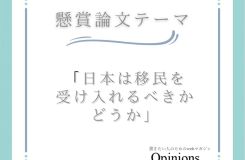 元芝園団地自治会岡﨑 広樹
元芝園団地自治会岡﨑 広樹岡﨑 広樹の記事を見る
-
 岡山外語学院留学生カーン エムディ マムン
岡山外語学院留学生カーン エムディ マムンカーン エムディ マムンの記事を見る
-
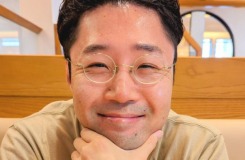 行政書士板垣 岳人
行政書士板垣 岳人板垣 岳人の記事を見る
-
 Crimson Education教育コンサルタント蘇 暁辰(Xiaochen Su)
Crimson Education教育コンサルタント蘇 暁辰(Xiaochen Su)蘇 暁辰(Xiaochen Su)の記事を見る
-
 神戸大学准教授斉藤 善久
神戸大学准教授斉藤 善久斉藤 善久の記事を見る
-
 ドイツ在住阿部プッシェル 薫
ドイツ在住阿部プッシェル 薫阿部プッシェル 薫の記事を見る
-
 ライター/編集者黒部 麻子
ライター/編集者黒部 麻子黒部 麻子の記事を見る
-
 翻訳家田尻 潤子
翻訳家田尻 潤子田尻 潤子の記事を見る
-
 アブダビ環境庁長官 Environment Agency – Abu Dhabi (ead.gov.ae)シャイカ・サレム・アル・ダヘリ
アブダビ環境庁長官 Environment Agency – Abu Dhabi (ead.gov.ae)シャイカ・サレム・アル・ダヘリシャイカ・サレム・アル・ダヘリの記事を見る
-
 元整形外科医/農園主散木洞人
元整形外科医/農園主散木洞人散木洞人の記事を見る
-
 豊橋技術科学大学パク ミンジョン
豊橋技術科学大学パク ミンジョンパク ミンジョンの記事を見る
-
 生理革命委員会澤田まりあ、山形萌花、山領珊南
生理革命委員会澤田まりあ、山形萌花、山領珊南澤田まりあ、山形萌花、山領珊南の記事を見る
-
 SOMPOケア株式会社藤田 定司
SOMPOケア株式会社藤田 定司藤田 定司の記事を見る
-
 おかやま山陽高等学校橘 里香サニヤ
おかやま山陽高等学校橘 里香サニヤ橘 里香サニヤの記事を見る
-
 ソシエタス総合研究所 研究員坂入 悦子
ソシエタス総合研究所 研究員坂入 悦子坂入 悦子の記事を見る
-
 Hiro山下行政書士国際法務事務所 代表山下裕司
Hiro山下行政書士国際法務事務所 代表山下裕司山下裕司の記事を見る
-
 ソシエタス総合研究所 研究員Niklas Holzapfel ホルツ アッペル ニクラス
ソシエタス総合研究所 研究員Niklas Holzapfel ホルツ アッペル ニクラスNiklas Holzapfel ホルツ アッペル ニクラスの記事を見る
-
 サウンドエンジニアEmre・Ekici エムレ・エキジ
サウンドエンジニアEmre・Ekici エムレ・エキジEmre・Ekici エムレ・エキジの記事を見る
-
 NPO法人岡山県国際団体協議会
NPO法人岡山県国際団体協議会岡山県国際団体協議会の記事を見る
-
 岡山大学 学術研究院 社会文化科学学域 教授東條 光彦
岡山大学 学術研究院 社会文化科学学域 教授東條 光彦東條 光彦の記事を見る
-
 福岡大学 名誉教授田村 和夫
福岡大学 名誉教授田村 和夫田村 和夫の記事を見る
-
 ソシエタス総合研究所 研究員相川 真穂
ソシエタス総合研究所 研究員相川 真穂相川 真穂の記事を見る
-
 一般社団法人京都総合科学研究所 アドバイザー松村 道郎
一般社団法人京都総合科学研究所 アドバイザー松村 道郎松村 道郎の記事を見る
-
 ワラム株式会社 代表取締役加藤 侑子
ワラム株式会社 代表取締役加藤 侑子加藤 侑子の記事を見る
-
 岡山市立操南中学校 教諭/NPO法人国際協力研究所・岡山代表理事竹島 潤
岡山市立操南中学校 教諭/NPO法人国際協力研究所・岡山代表理事竹島 潤竹島 潤の記事を見る
-
 新西横浜街の予防医療ケア研究室 保健師・看護師・元先端バイオ創薬ベンチャー取締役五十嵐 直敬
新西横浜街の予防医療ケア研究室 保健師・看護師・元先端バイオ創薬ベンチャー取締役五十嵐 直敬五十嵐 直敬の記事を見る
-
 共著橋本俊明・秋吉湖音
共著橋本俊明・秋吉湖音橋本俊明・秋吉湖音の記事を見る
-
 ライター菊池 洋勝
ライター菊池 洋勝菊池 洋勝の記事を見る
-
 大東文化大学国際関係学部・特任教授 高崎経済大学経済学部・非常勤講師 目白大学経営学部経営学科&目白大学大学院経営学研究科 非常勤講師 長崎県佐世保市役所 経済活性化~産業振興に関するアドバイザー、博士(経済学)江崎 康弘
大東文化大学国際関係学部・特任教授 高崎経済大学経済学部・非常勤講師 目白大学経営学部経営学科&目白大学大学院経営学研究科 非常勤講師 長崎県佐世保市役所 経済活性化~産業振興に関するアドバイザー、博士(経済学)江崎 康弘江崎 康弘の記事を見る
-
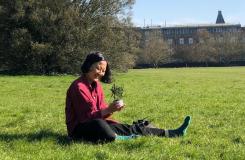 ソシエタス総合研究所 研究員秋吉 湖音
ソシエタス総合研究所 研究員秋吉 湖音秋吉 湖音の記事を見る
-
 JICA専門家足立 伸也
JICA専門家足立 伸也足立 伸也の記事を見る
-
 富士通株式会社 第三ファイナンス事業本部 シニアマネージャー安留 義孝
富士通株式会社 第三ファイナンス事業本部 シニアマネージャー安留 義孝安留 義孝の記事を見る
-
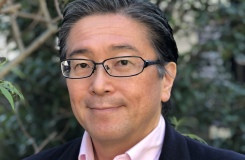 EDAS(イーダス)理事長田村 拓
EDAS(イーダス)理事長田村 拓田村 拓の記事を見る
-
 監督・プロデューサー湯浅 典子
監督・プロデューサー湯浅 典子湯浅 典子の記事を見る
-
 日本経済大学 准教授山下 誠矢
日本経済大学 准教授山下 誠矢山下 誠矢の記事を見る
-
 人と医療の研究室 代表池尻 達紀
人と医療の研究室 代表池尻 達紀池尻 達紀の記事を見る
-
 一般社団法人飛島学園 代表理事堂野 博之
一般社団法人飛島学園 代表理事堂野 博之堂野 博之の記事を見る
-
 ニッセイ基礎研究所 生活研究部 主任研究員、ヘルスケアリサーチセンター・ジェロントロジー推進室兼任金 明中
ニッセイ基礎研究所 生活研究部 主任研究員、ヘルスケアリサーチセンター・ジェロントロジー推進室兼任金 明中金 明中の記事を見る
-
 医療法人財団足立病院 理事長、社会福祉法人あだち福祉会 理事長畑山 博
医療法人財団足立病院 理事長、社会福祉法人あだち福祉会 理事長畑山 博畑山 博の記事を見る
-
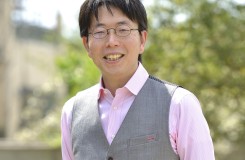 教育研究家、合同会社ライフ&ワーク代表妹尾 昌俊
教育研究家、合同会社ライフ&ワーク代表妹尾 昌俊妹尾 昌俊の記事を見る
-
 ハーバード大学ベス・イスラエル・ディーコネス・メディカルセンター、高度消化管/最小侵襲外科フェロー中元 啓太郎
ハーバード大学ベス・イスラエル・ディーコネス・メディカルセンター、高度消化管/最小侵襲外科フェロー中元 啓太郎中元 啓太郎の記事を見る
-
 ソシエタス総合研究所 主任研究員井上 登紀子
ソシエタス総合研究所 主任研究員井上 登紀子井上 登紀子の記事を見る
-
 ソシエタス総合研究所 研究員松田 郁乃
ソシエタス総合研究所 研究員松田 郁乃松田 郁乃の記事を見る
-
 ソシエタス総合研究所 研究員アイシェ・ウルグン・ソゼン Ayse Ilgin Sozen
ソシエタス総合研究所 研究員アイシェ・ウルグン・ソゼン Ayse Ilgin Sozenアイシェ・ウルグン・ソゼン Ayse Ilgin Sozenの記事を見る
-
 NPO法人岡山市子どもセンター 事務局久川 春菜
NPO法人岡山市子どもセンター 事務局久川 春菜久川 春菜の記事を見る
-
 ユースワーカー(Youth Woker)森分 志学
ユースワーカー(Youth Woker)森分 志学森分 志学の記事を見る
-
 ペンネーム三村 喜久雄
ペンネーム三村 喜久雄三村 喜久雄の記事を見る
-
 ペンネーム黒木 洋一郎
ペンネーム黒木 洋一郎黒木 洋一郎の記事を見る
-
 NPO法人チャリティーサンタ 理事河津 泉
NPO法人チャリティーサンタ 理事河津 泉河津 泉の記事を見る
-
 金沢大学人間社会学域地域創造学類・准教授 、特定非営利活動法人国土利用再編研究所・理事長林 直樹
金沢大学人間社会学域地域創造学類・准教授 、特定非営利活動法人国土利用再編研究所・理事長林 直樹林 直樹の記事を見る
-
 認定NPO法人ペアレント・サポートすてっぷ理事長安藤希代子
認定NPO法人ペアレント・サポートすてっぷ理事長安藤希代子安藤希代子の記事を見る
-
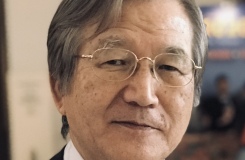 カリフォルニア大学サンフランシスコ校小児胸部心臓外科教授佐野俊二
カリフォルニア大学サンフランシスコ校小児胸部心臓外科教授佐野俊二佐野俊二の記事を見る
-
 社会福祉法人 旭川荘 ひらたえがお保育園 園長江田 加代子
社会福祉法人 旭川荘 ひらたえがお保育園 園長江田 加代子江田 加代子の記事を見る
-
 NPO法人 おかやまUFE 副理事長 ・NPO法人 おかやまUFE 事務局阪井 ひとみ・永松千恵
NPO法人 おかやまUFE 副理事長 ・NPO法人 おかやまUFE 事務局阪井 ひとみ・永松千恵阪井 ひとみ・永松千恵 の記事を見る
-
 社会学者 東京大学名誉教授 認定NPO法人ウィメンズアクションネットワーク(WAN)理事長 上野 千鶴子
社会学者 東京大学名誉教授 認定NPO法人ウィメンズアクションネットワーク(WAN)理事長 上野 千鶴子上野 千鶴子 の記事を見る
-
 外務省 国際保健政策室長 鷲見 学
外務省 国際保健政策室長 鷲見 学鷲見 学の記事を見る
-
 プロ・アダプティブ・サーファー藤原(旧姓:川上)智貴
プロ・アダプティブ・サーファー藤原(旧姓:川上)智貴藤原(旧姓:川上)智貴の記事を見る
-
 京都大学霊長類研究所 教授正高信男
京都大学霊長類研究所 教授正高信男正高信男の記事を見る
-
 社会医療法人石川記念会HITO病院緩和ケア内科統括部長大坂巌
社会医療法人石川記念会HITO病院緩和ケア内科統括部長大坂巌大坂巌の記事を見る
-
 東京医療学院大学保健医療学部教授上田 諭
東京医療学院大学保健医療学部教授上田 諭上田 諭の記事を見る
-
 「夢を叶える145」ライター宮村孝博
「夢を叶える145」ライター宮村孝博宮村孝博の記事を見る
-
 NPO法人 Anneの家 代表 美作地区里親会会員松本芳也・淳子夫妻
NPO法人 Anneの家 代表 美作地区里親会会員松本芳也・淳子夫妻松本芳也・淳子夫妻の記事を見る
-
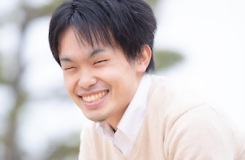 特定非営利活動法人あかね 代表理事中山 遼
特定非営利活動法人あかね 代表理事中山 遼中山 遼の記事を見る
-
 大阪市立総合医療センター 緩和医療科部長 兼 緩和ケアセンター長 大阪市立大学医学部臨床准教授 一般社団法人「こどものホスピスプロジェクト」常務理事 日本小児科学会専門医 英国カーディフ大学緩和ケア認定医(Certificate in Palliative Care) 日本緩和医療学会暫定多田羅竜平
大阪市立総合医療センター 緩和医療科部長 兼 緩和ケアセンター長 大阪市立大学医学部臨床准教授 一般社団法人「こどものホスピスプロジェクト」常務理事 日本小児科学会専門医 英国カーディフ大学緩和ケア認定医(Certificate in Palliative Care) 日本緩和医療学会暫定多田羅竜平多田羅竜平の記事を見る
-
 NPO法人 岡山マインド「こころ」/代表理事 一般社団法人お互いさま・まびラボ/副代表理事多田伸志
NPO法人 岡山マインド「こころ」/代表理事 一般社団法人お互いさま・まびラボ/副代表理事多田伸志多田伸志の記事を見る
-
 一般社団法人MY TREE代表理事 MY TREEペアレンツ・プログラムスーパーバイザー 認定フェミニストカウンセラー (公認心理師)中川和子
一般社団法人MY TREE代表理事 MY TREEペアレンツ・プログラムスーパーバイザー 認定フェミニストカウンセラー (公認心理師)中川和子中川和子の記事を見る
-
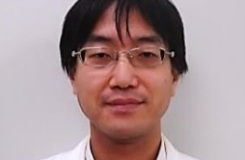 兵庫県立ひょうごこころの医療センター精神科医師小田 陽彦
兵庫県立ひょうごこころの医療センター精神科医師小田 陽彦小田 陽彦の記事を見る
-
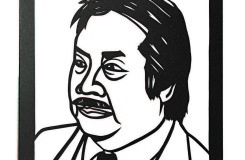 独立行政法人国立病院機構福山医療センター院長岩垣博己・堀井城一朗・矢野 平
独立行政法人国立病院機構福山医療センター院長岩垣博己・堀井城一朗・矢野 平岩垣博己・堀井城一朗・矢野 平の記事を見る
-
 岡山大学 教授 文学部長田中 共子
岡山大学 教授 文学部長田中 共子田中 共子の記事を見る
-
 Civil Engineer (仕組みつくりの技術者)石田篤史
Civil Engineer (仕組みつくりの技術者)石田篤史石田篤史の記事を見る
-
 一般財団法人キヤノングローバル戦略研究所 研究主幹・経済学博士松山幸弘
一般財団法人キヤノングローバル戦略研究所 研究主幹・経済学博士松山幸弘松山幸弘の記事を見る
-
 岡山大学生殖補助医療技術教育研究センター ART教育研究部門長・教授舟橋 弘晃
岡山大学生殖補助医療技術教育研究センター ART教育研究部門長・教授舟橋 弘晃舟橋 弘晃の記事を見る
-
 医療法人サンズ理事長浅野 直
医療法人サンズ理事長浅野 直浅野 直の記事を見る
-
 株式会社ヘリオス 代表執行役社長CEO鍵本忠尚
株式会社ヘリオス 代表執行役社長CEO鍵本忠尚鍵本忠尚の記事を見る
-
 慶應義塾大学文学部人間科学専攻教授(医療人類学) McGill大学人類学部・医療社会研究学部Ph.D.北中淳子
慶應義塾大学文学部人間科学専攻教授(医療人類学) McGill大学人類学部・医療社会研究学部Ph.D.北中淳子北中淳子の記事を見る
-
 岡山大学病院 緩和支持医療科片山英樹
岡山大学病院 緩和支持医療科片山英樹片山英樹の記事を見る
-
 岡山市役所 保健福祉企画総務課松岡克朗
岡山市役所 保健福祉企画総務課松岡克朗松岡克朗の記事を見る
-
 近現代史研究家青木康嘉
近現代史研究家青木康嘉青木康嘉の記事を見る
-
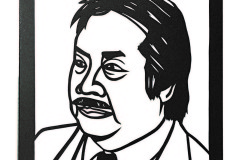 独立行政法人国立病院機構福山医療センター院長岩垣博己・長谷川利路・中島正勝
独立行政法人国立病院機構福山医療センター院長岩垣博己・長谷川利路・中島正勝岩垣博己・長谷川利路・中島正勝の記事を見る
-
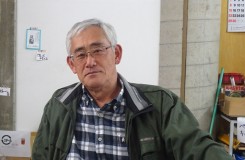 岡山高等学院 副校長 水野文一郎
岡山高等学院 副校長 水野文一郎水野文一郎の記事を見る
-
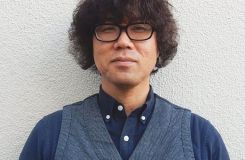 社会の仕組み屋、社会の編集者石原 達也
社会の仕組み屋、社会の編集者石原 達也石原 達也の記事を見る
-
 一般社団法人SGSG理事長/中国学園大学子ども学部講師野村泰介
一般社団法人SGSG理事長/中国学園大学子ども学部講師野村泰介野村泰介の記事を見る
-
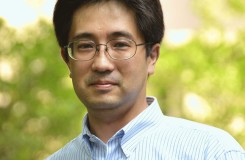 一橋大学経済研究所 教授神林 龍
一橋大学経済研究所 教授神林 龍神林 龍の記事を見る
-
 特定医療法人自由会 理事 (社会福祉法人敬友会 理事、公益財団法人橋本財団 理事)橋本 健二
特定医療法人自由会 理事 (社会福祉法人敬友会 理事、公益財団法人橋本財団 理事)橋本 健二橋本 健二の記事を見る
-
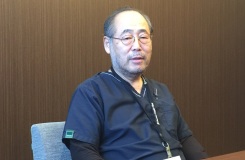 医療法人社団 岡山二人クリニック 理事長、医学博士林 伸旨
医療法人社団 岡山二人クリニック 理事長、医学博士林 伸旨林 伸旨の記事を見る
-
 フリーライター渡辺嗣郎(わたなべ しろう)
フリーライター渡辺嗣郎(わたなべ しろう)渡辺嗣郎(わたなべ しろう)の記事を見る
-
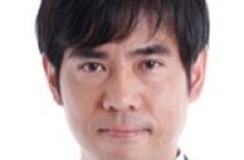 国立大学法人岡山大学 副理事(国際担当)横井 篤文
国立大学法人岡山大学 副理事(国際担当)横井 篤文横井 篤文の記事を見る
-
 ペンネームドクターX
ペンネームドクターXドクターXの記事を見る
-
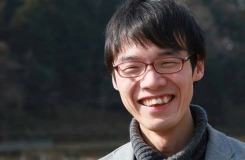 NPO法人 山村エンタープライズ 代表理事藤井裕也
NPO法人 山村エンタープライズ 代表理事藤井裕也藤井裕也の記事を見る
-
 キャンサー・ソリューションズ株式会社 代表取締役社長桜井 なおみ
キャンサー・ソリューションズ株式会社 代表取締役社長桜井 なおみ桜井 なおみの記事を見る
-
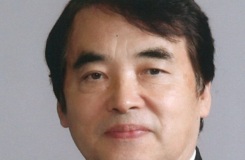 AMDA(アムダ) グループ代表・認定非営利活動法人AMDA 理事長菅波 茂
AMDA(アムダ) グループ代表・認定非営利活動法人AMDA 理事長菅波 茂菅波 茂の記事を見る
-
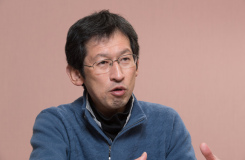 ふれあい歯科ごとう代表五島 朋幸
ふれあい歯科ごとう代表五島 朋幸五島 朋幸の記事を見る
-
 介護従事者髙田 浩一
介護従事者髙田 浩一髙田 浩一の記事を見る
-
 ケアマネ-ジャー・社会福祉士かえる ちから
ケアマネ-ジャー・社会福祉士かえる ちからかえる ちからの記事を見る
-
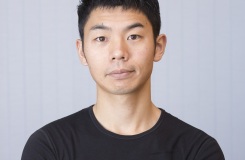 五常・アンド・カンパニー株式会社 代表取締役社長慎 泰俊
五常・アンド・カンパニー株式会社 代表取締役社長慎 泰俊慎 泰俊の記事を見る
-
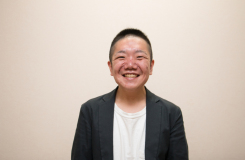 NPO法人 ポケットサポート代表理事三好 祐也
NPO法人 ポケットサポート代表理事三好 祐也三好 祐也の記事を見る
-
 医療法人 寺田病院 院長板野 聡
医療法人 寺田病院 院長板野 聡板野 聡の記事を見る
-
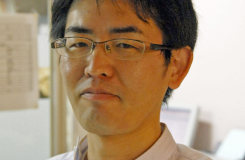 鳥取市立病院 地域医療総合支援センター 生活支援室 副室長、リハビリテーション部 副部長、歯科 医長目黒 道生
鳥取市立病院 地域医療総合支援センター 生活支援室 副室長、リハビリテーション部 副部長、歯科 医長目黒 道生目黒 道生の記事を見る
-
 鳥取市立病院地域医療総合支援センター長 鳥取市福祉部参与足立 誠司
鳥取市立病院地域医療総合支援センター長 鳥取市福祉部参与足立 誠司足立 誠司の記事を見る
-
 ペンネーム池井戸 高志
ペンネーム池井戸 高志池井戸 高志の記事を見る
-
 ペンネーム池田 出水
ペンネーム池田 出水池田 出水の記事を見る
-
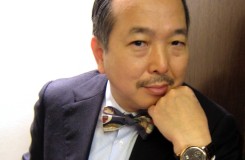 岡山大学大学院ヘルスシステム統合科学研究科教授松岡 順治
岡山大学大学院ヘルスシステム統合科学研究科教授松岡 順治松岡 順治の記事を見る
-
 鳥取市立病院 名誉院長田中 紀章
鳥取市立病院 名誉院長田中 紀章田中 紀章の記事を見る
-
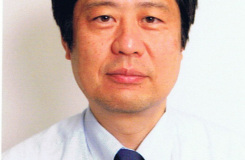 岡山大学大学院保健学研究科 副研究科長 教授齋藤 信也
岡山大学大学院保健学研究科 副研究科長 教授齋藤 信也齋藤 信也の記事を見る
-
 公益財団法人橋本財団 理事長、医学博士橋本 俊明
公益財団法人橋本財団 理事長、医学博士橋本 俊明橋本 俊明の記事を見る






